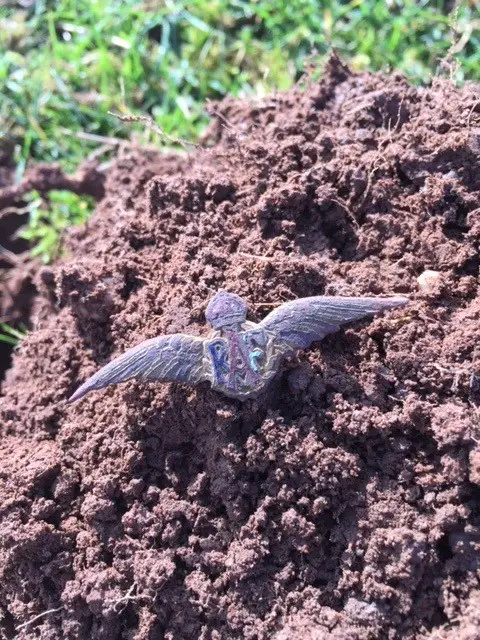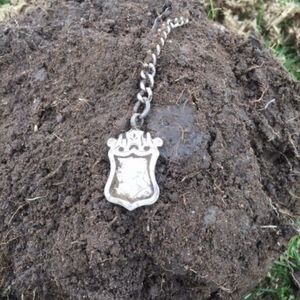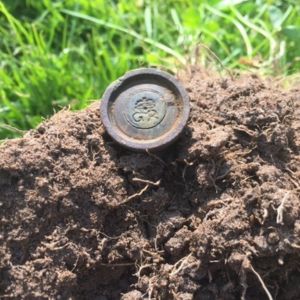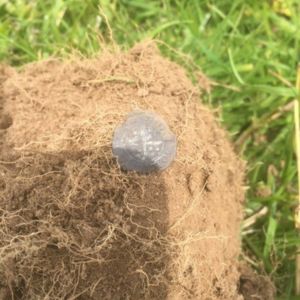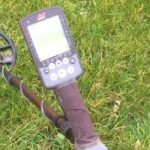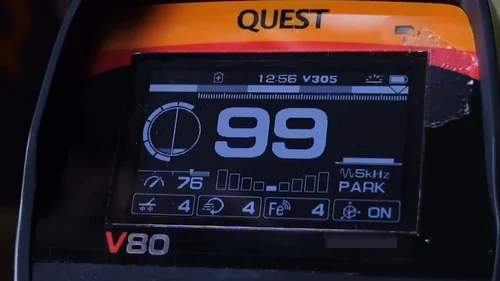15 Metal detector problems solved!
Problems that can occur when using a metal detector can include external interference, the sensitivity being set too high, overhead or underground electric cables, ground mineralisation, and a damaged or cracked search coil to name a few.
Others include muck under a coil cover, loose connections in leads, an aggressive discrimination pattern, trashy areas, loose or drained batteries amongst others.
We cover the big issues that could cause your metal detector to ruin your day! A great place to start first would be read my article on metal detector settings here.
I also have a great article on metal detecting top tips that will make your hunting days easier. It’s called metal detecting tips UK.
1 – External interference
External interference can arise in a few forms. These can interrupt electromagnetic fields or bluetooth connections and cause crackles, pops and a mess of signals that you can’t fathom out.
These can come from overhead power cables, underground power cables or even mobile phone transmitters.
These problems can usually be solved if you have a frequency shift function or noise cancelling ability on your machine.
One some higher end single frequency machines, there will be an option in the menu settings to slightly shift the operating frequency from its nominal setting.
This will typically be called “Frequency Shift”. This can help in some conditions. On other machines, typically made by Minelab, there will be an advanced function called a “Noise Cancel”.
This function makes the detector check its surroundings to see which of its channels is the quietest.
After scanning, it will choose this channel and immediately silence the machine. This is a typical function found on Minelab metal detectors.

Unbeatable Multi Frequency!
You can now get the ultimate power of multi frequency technology over single frequency detectors with the Minelab Vanquish range of detectors.
The entry level Vanquish 340 now gives you ultimate depth, stability and sensitivity on all target types in every soil, including wet beach sand.
2 – Sensitivity too high
This is a very common issue because some detectorists associate depth with their sensitivity settings. To a certain extent, this is true. The higher a sensitivity setting is pushed, the deeper a metal detector will detect.
This however can come with inherent difficulties. When sensitivity is increased, the detector becomes more susceptible to external interference and also any mineralisation in the ground.
A good analogy is that it’s like driving a car in thick fog where the fog represents the ground.
When driving in fog, it’s best to keep your headlights in their dipped setting. As soon as you put your headlights into full beam, you get white out making driving conditions worse because you can’t see.
This is the same for sensitivity. In tough conditions, it’s always best to raise your sensitivity as high as it will go but to stop when your detector starts to become unstable.
By using this practice, smaller targets will be more detectable because they won’t tend to get lost in amongst a lot of unwanted noise. The aim is to run your detector as quiet and as stable as possible.
3 – Overhead or underground power lines
Live power lines can very often be the source of a lot of interference. These can be in the form of buried cables or overhead cables.
Live cables produce an electromagnetic field around the cable which can clash with the electromagnetic field created around your search coil.
The interference usually subsides the further you walk away from it. (Read further about metal detector coils in my article here)
4 – Ground mineralisation
The biggest target a metal detector can pick up is the Earth! Mineralisation come in the form of Magnetite and Hematite in the form of ferrous oxides.
These iron based particles in the soil can cause havoc with a detector unless it has the ability to ignore them. On top of that, hot rocks and coke left from industrialisation litter fields.
All of these things can effect a stable electromagnetic field around a search coil. As we have just talked about, higher sensitivity settings worsen this effect. How can this interference be minimised?
Effects can be minimised by the use of “Ground Balancing” and reducing sensitivity. On lower end detectors, the ground balance is typically fixed and set by the manufacturer which can be unfortunate in more challenging soil conditions.
On higher end machines, it can come in the form of a manual ground balance, an auto ground balance or ground tracking.
What ground balancing does is basically measure conditions in the ground and carries out some complicated maths to “remove” the ground from any targets by altering its reference point.
Try to own a detector with a flexible ground balancing functionality to eliminate this.
(You can get some suggestions in my article about getting the best beginner metal detector here)
Multi frequency metal detectors are the latest generation of technology. They have been designed to handle the toughest of ground conditions, including wet beaches.
These machines can be had now for a very reasonable price. (Read more about multi frequency technology in my article here)
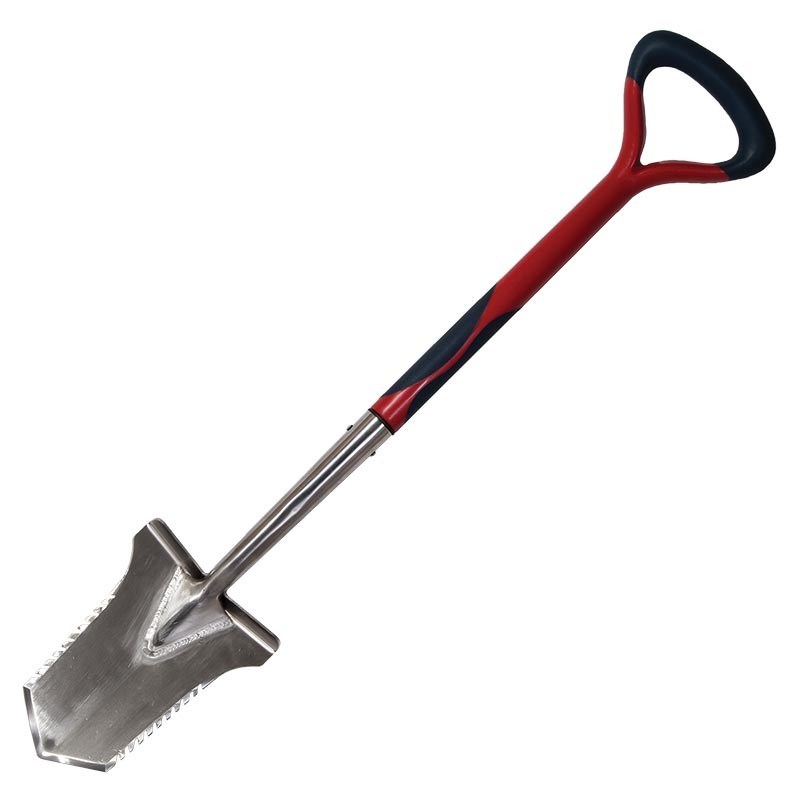
The Evolution Pro Cut
The ultimate accessary for the serious metal detectorist. Super strong, stainless steel specially designed spade.
5 – Damaged or cracked coil
This is not as common as some other problems but I have seen this happen. Metal detector search coils can take some punishment and over a period of time can be cracked.
When sweeping, a search coil can be struck against tree stumps, stubble and rocks causing the outer plastic cover to crack.
The plastic outer body protects the inner loop which in most cases is set into resin. If water or moisture gets into the crack, this can cause crackling as short circuits happens.
If you can, always try to have a spare search coil with you when you venture out. You can then swap it should this ever arise.
If you don’t have a spare coil, maybe check with a fellow detectorists coil if they have an identical machine. This will eliminate any doubt.
6 – Water/mud/objects trapped under coil cover
As search coils can be expensive, it’s always best to have a scuff cover or “skid pan” to protect the bottom of the coil from the ground.
After a while and depending on the design, water, muck and deposits can get lodged inbetween the coil and the scuff cover.
I have seen in the past a piece of metal trash lodged inbetween a coil and a scuff cover and it drove the detectorist mad trying to diagnose the problem.
The soil might also have some contamination which could upset the search coil electromagnetic field. Always pop off your scuff cover regularly and make sure it’s clean and dry to eliminate this problem.
7 – Loose connection lead
This I’ve also seen in the field. Many detector coils have a cable that runs from the coil, wraps around the shaft and ends up being screwed into the control box.
If the screw plug is not fully sat in properly, it can cause intermittent problems that will drive you insane. I always check my equipment before I drive anywhere to make sure everything is attached securely.
8 – Discrimination pattern
If you are first starting out, this can be an easy mistake to make. Most, if not all metal detectors have preset search modes or patterns. They tell the detector to ignore certain targets and accept others.
There is a setting on most detectors that will be called “All Metal” and sometimes be denoted by a button with a horse shoe on it.
If you have mistakingly pressed this, you will be picking up absolutely everything of a metallic nature under the search coil. I have an article on what a metal detector can detect here.
Depending on where you detecting, this could drive you mad. To help this, double check that you are in the correct search mode or pattern for your surroundings. This will help eliminate unwanted targets.
9 – Trashy areas
In a similar vein to the above problem, be aware of where you hunting. This will effect which mode or pattern you might need to use.
In trashy areas like parks, there will be a lot of discarded rubbish so a more aggressive search pattern maybe needed.
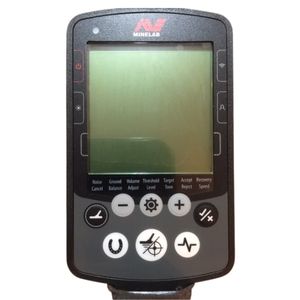
The Minelab Equinox 800
The ultimate and original multi frequency machine that has opened up a whole new world in detecting technology.
Deep detection and constant stable target identification.
10 – Dying or loose batteries
Batteries at the end of their life or even batteries that are loose inside a control box can cause intermittent beeping or crackling. This is a good place to check initially.
It is always a good skill to be prepared so always carry brand new spare batteries when you venture out.
If you get caught out, you can then replace them in the field and carry on detecting. It could be a long way home for a short visit.
11 – Mobile phones/transmitters
Mobile phones and transmitters on towers can also cause interference in some cases. This can be eliminated or reduced by executing the Noise Cancelling function or a Frequency Shift on your detector.
12 – Headphones
Alway check your headphones before venturing out. Headphones can take a lot of punishment and the constant pulling on the cable can in some cases cause a wire to become loose. If you can, always try to have a backup set with you.
Even if they are not exactly ideal for the job, it might save you a wasted day and allow you to carry on detecting. Just ensure they are of the correct sized jack plug.
13 – Nearby metal detectors
This happens all of the time at busy metal detecting rallies or club digs. The chances of someone near you using the exact same metal detector as you is quite high. This mostly happens with multi frequency detectors.
As you move closer, the detectors will set each other off. This is why the frequency shift option is available. One of you will have to offset slightly from the main operating frequency. This most likely will cure it.
14 – Pinpointer interference
I’ve luckily never suffered from this but I’ve seen people who have suffered from it. Like the above, there are many things that when used, generate an electromagnetic field around them. Mobile phones, cables, transmitters etc.
One of these things could be your pinpointer. This will become apparent when your detector is on the ground and you have your headphones on. When you switch on your pinpointer, you will get a mass of interference in your ears!
This is because they may be using the same frequency. To cure this, a frequency shift is needed on the detector. Things will then go quiet. (You can read more on metal detector pinpointers in my article here)
15 – Incompatible search coil
Finally, you may have swapped the coil on your detector for a coil that is incompatible. For a start, coils from different manufacturers will not work on each others machines.
As a rule of thumb, try to stick to the same manufacturer and then again to the same detector model.
What can be confusing is that after market coils are also made by third party coil manufacturers. If you are going to purchase a new aftermarket coil, it is absolutely vital that you double check the coil is compatible with your machine.
If in doubt, email the supplier first. This should eliminate this problem.
Final thoughts
Okay, we have covered many of the things that could either cause interference, pops, chirps, crackles or even just plainly cause your detector to stop working. In most cases, it is just a really good idea to have an equipment check before you go out.
This could save a lot of wasted time and fuel if you have to drive to your destination.
Some of the checks and skills we have talked about could also allow you to keep detecting in the field and not have to trudge back miles to the car to either pick something up or return home.
I hope this has been of help. Stay safe and happy hunting!

Ultimate Tactical Packs!
Carry everything you’ll need for a detecting day like a First Aid kit, detector spares, finds boxes, batteries, snacks and drinks to rehydrate.
Never forget anything again with a belt pack!




